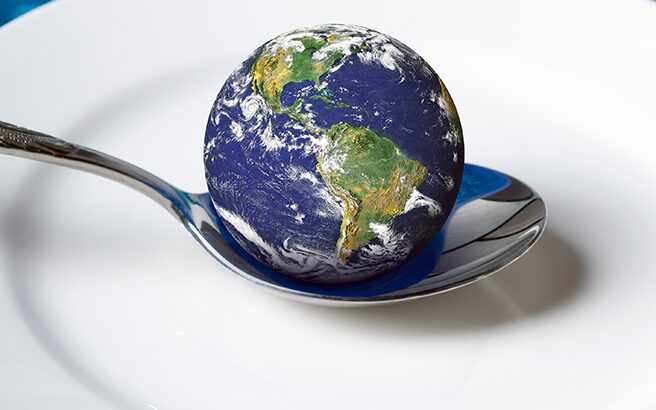Maggie Wetzel, World Cancer Research Fund (WCRF)’s Policy and Public Affairs Manager, joined in global health discussions at the World Health Organization’s Executive Board meeting.
Last week I plugged into my first World Health Organization (WHO) Executive Board meeting at 6am Argentina time, in my second week as the new Policy and Public Affairs Manager at WCRF International.
The EB (as I recently learned everybody calls it) convenes to discuss the agenda for the WHO World Health Assembly in May, where key health priorities are raised. I am happy to report I stayed afloat thanks to my wonderful new team, my limitless curiosity, and more coffee than I’d like to admit.
Promotion of healthy diets is a key priority for WCRF International and is something I’ve worked on from my home country Argentina – which has the second highest rate of child obesity in Latin America. I was excited to see how healthy diets featured in the EB and what action member states were committing to, to prevent cancer and other non-communicable diseases (NCDs).
Not being able to attend the event in person meant this year’s EB required some Zoom endurance over the eight-day meeting. The dynamics reminded me of my experience at the Argentine Congress, where politicians readied themselves for hours awating their turn to speak, with their interventions happening at a moment’s notice.
The impact of COVID

The WHO’s agenda for the 148th EB kickstarted with Public Health Emergency: Preparedness and Response. As to be expected with the pandemic highlighting the impact of countries’ poor planning, preparedness and response, this took up a considerable portion of this year’s meeting. However, this item on the agenda was a welcome insight into how each member state is dealing with the challenge of strained health services during the pandemic. All the more reason to focus on prevention for the future.
At present we are off track to meet targets set out by the WHO for Nutrition and NCDs by 2025, which means the Sustainable Development Goals (SDGs) are unlikely to be met by 2030. The implementation of NCD Policy ‘Best buys’ (which outline effective prevention policies in a number of risk factors including unhealthy diets and physical inactivity) and other efforts to prevent NCDs lack the scale needed to accelerate progress. The situation has worsened since we have seen the two pandemics of NCDs and COVID-19 collide, making it extremely unlikely that targets will be met by all countries.
WCRF International made a strong case at the EB this year for action on NCDs and healthy diets, and – alongside the UICC, the World Obesity Federation and the NCD Alliance – called on member states to build adequate resources and accelerate efforts to develop and implement diet-related NCD policies. We have urged the international community to recognise and address actions by the food and beverage industry that undermine health, and to engage with civil society in order to help strengthen action networks. The COVID-19 response MUST include diet-related NCD policies.
Our call for action on NCDs
The great news is that Decision EB148(7) has been adopted, calling on the WHO to develop an implementation roadmap for the prevention and control of NCDs that enables all countries to reach SDG target 3.4 by 2030, thus maximising every country’s chance of achieving the goals.
We also supported and co-signed statements relating to social determinants of health, calling for better monitoring and accountability of social inequality, and greater prioritisation of action on social determinants of health within NCD prevention.
We look forward to a groundbreaking year for nutrition with the UN Food Systems and Nutrition for Growth summits, and will work to ensure healthy diets and NCD prevention are core themes at these high-level events.
As an organisation in official relations with WHO, we outlined recommendations and concerns about procedures and practices relating to the engagement of non-state actors in governing body meetings. It’s vital that non-state actors, especially civil society, can contribute to and monitor discussions with member states and the WHO.
What next?
WHO Director General Dr Tedros Adhanom Ghebreyesus concluded this year’s EB with a powerful call for global vaccine equity: “Time is short and the stakes could not be higher. Every moment counts.”
This message is as pertinent for healthy diets and cancer prevention as it is for vaccination efforts. And so I say, every moment we spend not benefitting from a healthy diet, we risk facing the ultimate cost when the next global health crisis strikes. What are you waiting for?
